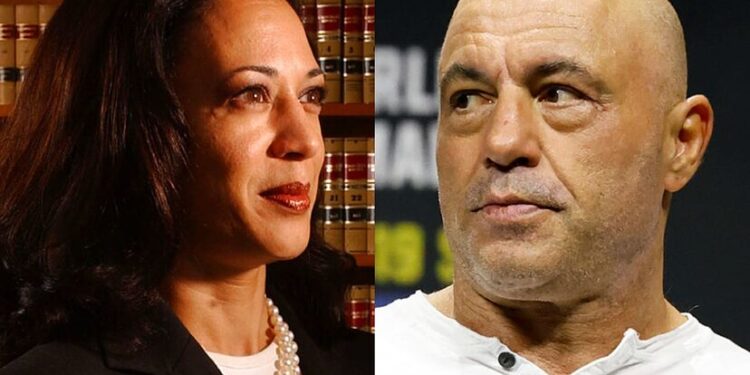Former Vice President Kamala Harris is disputing claims made by podcaster Joe Rogan that she avoided discussing marijuana legalization during the 2024 campaign, calling his version of events “a lie” in her newly released book 107 Days.
The memoir, published Tuesday, recounts Harris’s short-lived bid for the presidency after President Joe Biden withdrew from the race. In it, Harris details behind-the-scenes efforts to arrange a podcast appearance with Rogan in the final stretch before Election Day.
Rogan, who ultimately endorsed Donald Trump, alleged after the election that Harris “didn’t want to talk about marijuana legalization” when invited onto his program. He described the supposed reluctance as “hilarious.” Harris, however, writes that her campaign had explicitly suggested cannabis—along with social media censorship and cryptocurrency—as possible topics for the appearance. Rogan’s team, she said, insisted on limiting the discussion to the economy, immigration and abortion.
“No interview materialized because of scheduling issues and Rogan’s refusal to record remotely,” Harris wrote. On one proposed date, she added, Rogan’s team said he was taking a “personal day,” though she later discovered he had hosted Trump instead.
The dispute highlights ongoing tension over Harris’s record on marijuana. While she reaffirmed her support for legalization during the campaign and had previously sponsored a bill to end federal prohibition, critics often pointed to her time as San Francisco district attorney and California attorney general. Rogan repeated a common charge on his show, saying Harris “put a lot of people in jail for weed—1,500 apparently.”
Harris counters in the book that her prosecutorial record “has been mischaracterized,” noting she pursued diversion programs and did not seek jail time for simple possession. Records from the San Francisco District Attorney’s office show nearly 2,000 marijuana convictions between 2004 and 2010, but only 45 people were sent to state prison.
Trump, meanwhile, seized on Harris’s record during the campaign while presenting himself as supportive of rescheduling marijuana at the federal level—a process that remains stalled in his administration.
Read the whole article from Marijuanamoment here.













